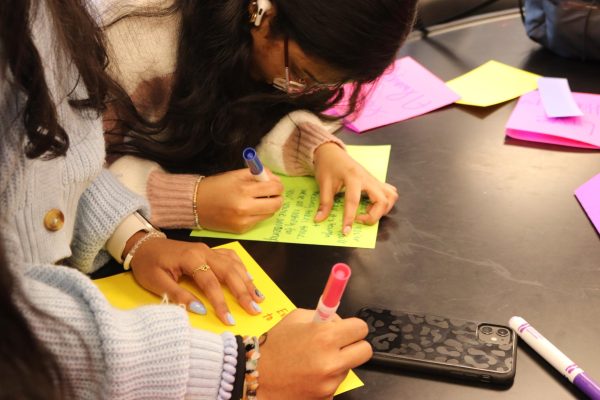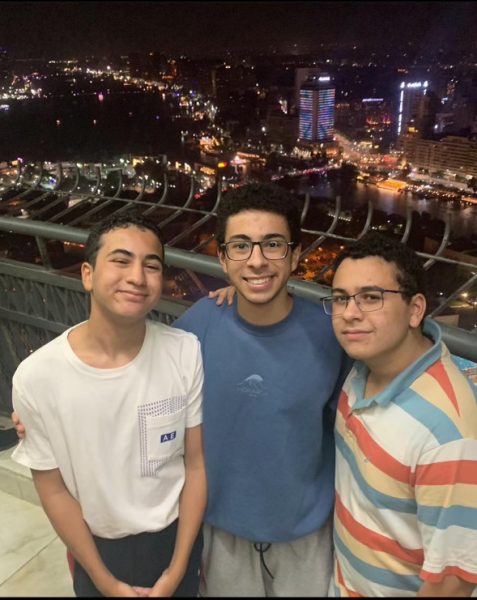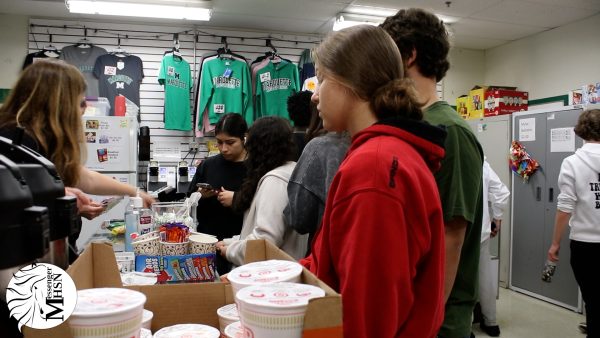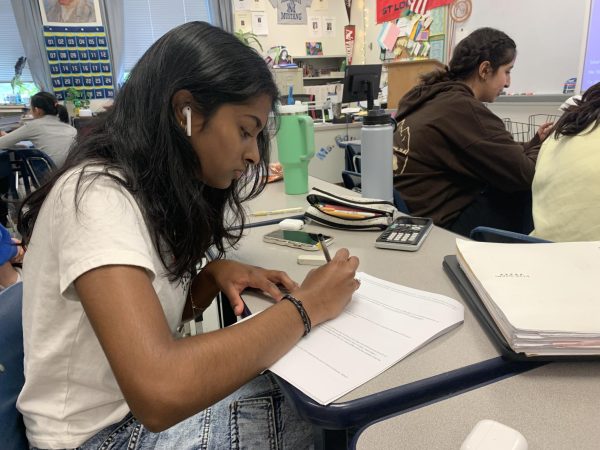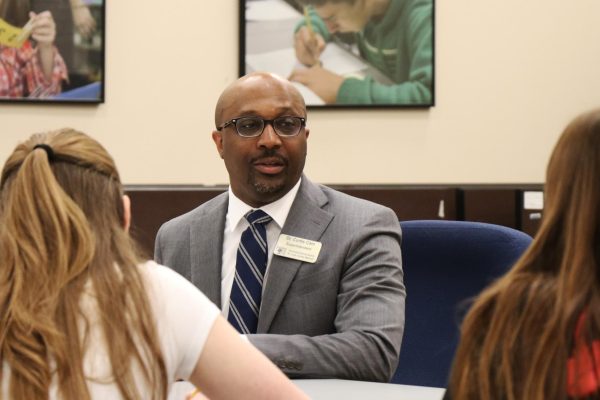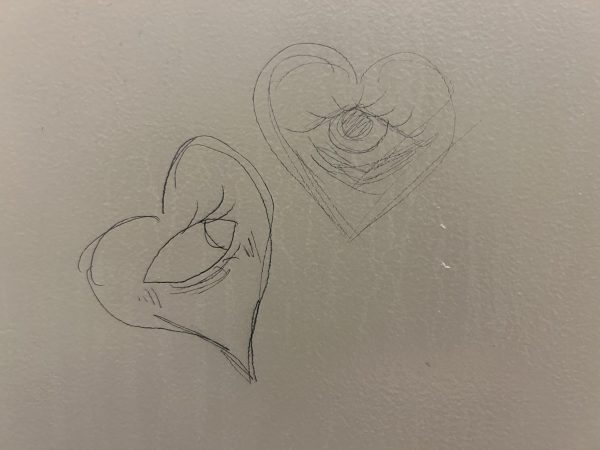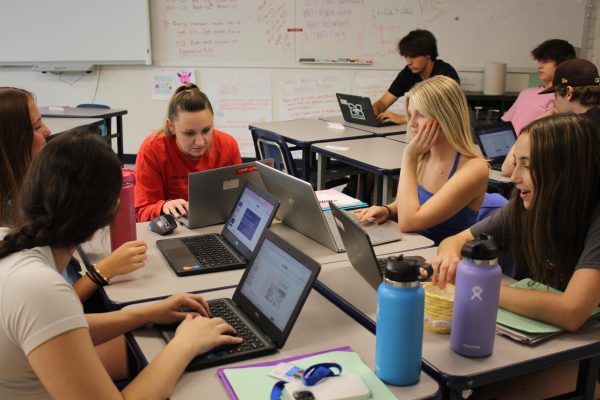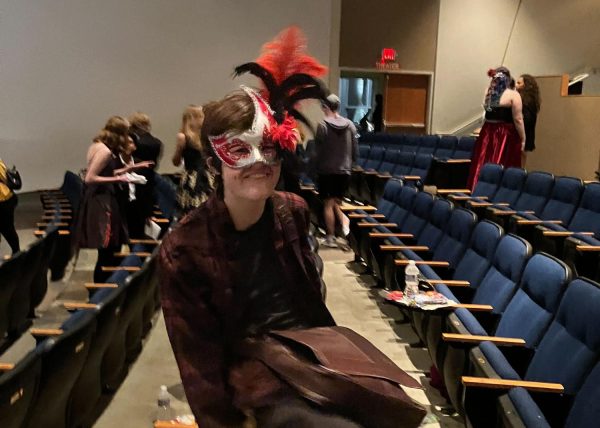MHS Celebrates Women’s History Month
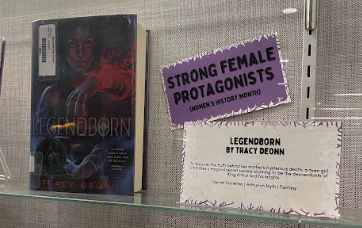
Media by Rue Siddiqui
The library has assembled various displays in honor of Women’s History Month.
The Wizard of Oz, the Boy Scouts of America, the Boeing Aircraft — all of these came before the 19th amendment. America created plane technology before they gave women the right to vote.
In hopes to combat this, the Education Task Force of the Sonoma County Commission on the Status of Women created a “Women’s History Week” celebration in 1978 in Santa Rosa, California, honoring women’s role in shaping history.
The sentiment spread quickly, and in 1980, under the leadership of the National Women’s History Project, women in the U.S. lobbied for national recognition. In February of that very year, the week of March 8 was declared “Women’s History Week” by President Jimmy Carter. By 1987, Congress had designated the month of March as “Women’s History Month.”
At MHS, students and staff are recognizing, celebrating and advocating for the cause in their own ways.
Isa Oliver, senior, read the Ac Lab fact of the day on Monday, March 13, which concerned Women’s History Month. She said her interest in the opportunity stemmed from witnessing men being ignorant in regards to women’s issues.
Giving women an opportunity to talk, and listening when they do, can get us a long way, in and out of STEM.
— Sophie Chang
“I try to gain other women’s perspectives,” Oliver said. “If I hear anyone talk about something in a sexist way, I try to correct them and educate them on why maybe we shouldn’t say or do certain things.”
Oliver said that though she does her part to dismantle negative stereotypes in every way she can, it takes more than just one individual. Discussing women’s contributions to history in the classroom is a step in the right direction, Oliver said.
“Women haven’t always had the rights we do now, and even now we still face some challenges that men don’t,” Oliver said. “Having a month dedicated to that is important to our growth as a society and why we still need to keep moving forward.”
Sophie Chang, junior, echoes this. As a girl heavily involved in STEM, Chang said she noticed a lack of female representation in the field. For this reason, Chang joined Superposition, aclub focused on empowering women in STEM and merging the present gender gap.
“A lot of our viewpoints and perspectives are lost in this male dominated field,” Chang said. “I want to change that.”
We’re doing a better job through books of recognizing that no depiction of an individual or gender needs to be perfect. Life is messy, so books should be complicated.
— Brittany Sharitz
The club conducts annual derbies, in which they visit an elementary school in the district and build foam cars with younger students, utilizing principles of engineering and physics. Chang said projects such as these, amongst others, foster safe environments in which women can thrive in STEM without facing scrutiny.
“Giving women an opportunity to talk, and listening when they do, can get us a long way, in and out of STEM,” Chang said.
Listening to women’s voices, Brittany Sharitz, librarian, said, is a vital part of bridging many gaps. Literature is an avenue to do so.
“Think back to classic literature. We used to see meek, timid female characters because we had white male writers who were dominating the publishing industry,” Sharitz said. “Good news, in the 2000s I saw a boom in female writers and strong female protagonists. Women’s voices are filling the publishing industry right now.”
Sharitz said this change is part of the reason why there is more diversity, whether that be varying genders, ethnic backgrounds or socioeconomic statuses, in novels than ever before.
“Now, we’re even seeing flawed women,” Sharitz said. “We’re doing a better job through books of recognizing that no depiction of an individual or gender needs to be perfect. Life is messy, so books should be complicated.”
Sharitz urges students to read books with characters both like and unlike themselves.
“You should not always feel like you’re reading a main character who is the same as you because we learn empathy through literature,” Sharitz said. “A book gives us previews into other people’s souls, so everyone should intentionally seek out different viewpoints.”
Your donation will support the student journalists of Marquette High School. Your contribution will allow us to purchase equipment and cover our annual website hosting costs. You may become a PATRON by making a donation at one of these levels: White/$30, Green/$50, Blue/$100. Patron names will be published in the print newsmagazine, on the website and once per quarter on our social media accounts.

Rue Siddiqui, senior, is the Co-Online Editor for the Marquette Messenger. This will be her third full year on staff. She is also a part of the Politics...



